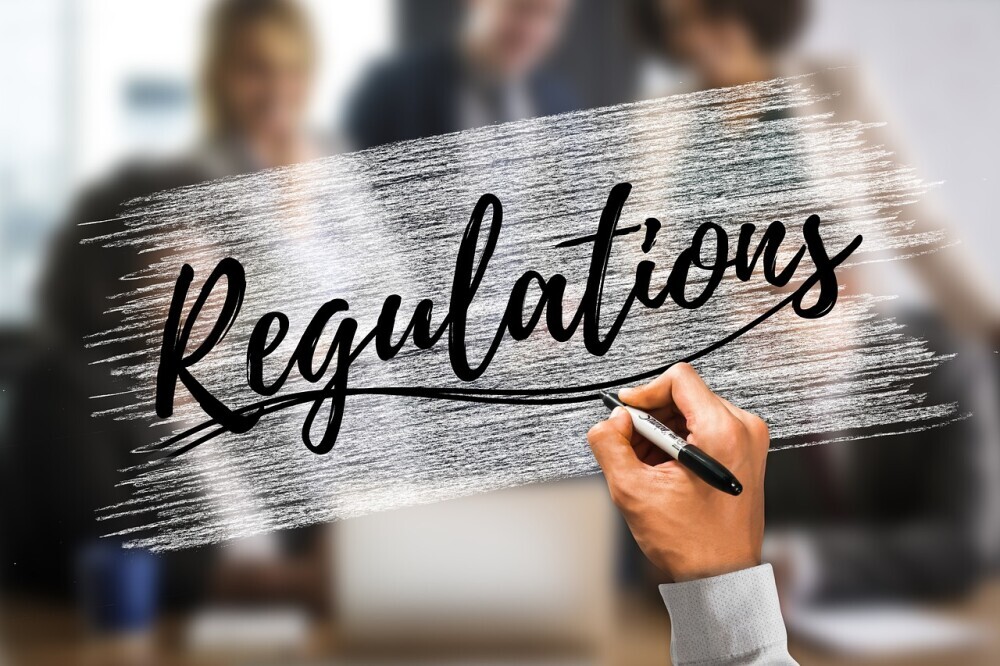
Navigating the Legal Landscape: AI Tools for Compliance and Regulation
The modern regulatory environment is a complex web of laws, rules, and guidelines that businesses must navigate to avoid legal pitfalls. Staying compliant can be a daunting task, requiring significant resources and meticulous attention to detail. However, the rise of Artificial Intelligence (AI) is offering powerful new tools to streamline compliance processes, minimize risks, and ensure adherence to ever-evolving regulations. This post explores how AI is transforming the legal landscape and empowering businesses to navigate compliance with greater efficiency and accuracy.
Check out our AI promotion website here: https://alpusonlineai.com.
1. Understanding the Intersection of AI and Legal Compliance
Setting the context for AI’s role in navigating the legal landscape.
Defining the role of AI in modern regulatory environments:
AI in regulatory environments refers to the use of intelligent computer systems to perform tasks related to compliance, such as:
- Monitoring regulatory changes.
- Analyzing large datasets to identify potential compliance risks.
- Automating compliance checks and reporting.
- Predicting future regulatory trends.
How AI is reshaping the legal compliance framework:
AI is reshaping the legal compliance framework by:
- Shifting from reactive to proactive compliance.
- Increasing the speed and accuracy of compliance processes.
- Reducing the reliance on manual labor.
- Providing data-driven insights for better decision-making.
Key compliance areas where AI can make a difference:
AI can be applied to various compliance areas, including:
- Data privacy (GDPR, CCPA).
- Anti-money laundering (AML).
- Know Your Customer (KYC).
- Financial regulations (e.g., Dodd-Frank).
- Environmental regulations.
The potential risks and benefits associated with AI integration:
Benefits:
- Increased efficiency and accuracy.
- Reduced costs.
- Proactive risk management.
- Improved decision-making.
Risks:
- Data privacy concerns.
- Algorithmic bias.
- Lack of transparency.
- Over-reliance on AI.
Check out our AI promotion website here: https://alpusonlineai.com.
2. Leveraging AI for Enhanced Regulatory Compliance Monitoring
AI provides powerful tools for continuous monitoring and early detection of potential issues.
AI-based tools for real-time compliance checks:
AI tools can monitor various data sources in real-time to detect potential compliance breaches, such as:
- Financial transactions.
- Customer data.
- Employee activity.
Case studies of industries successfully using AI for compliance:
Examples include financial institutions using AI for AML and KYC compliance, and healthcare organizations using AI to ensure compliance with HIPAA regulations.
Algorithms and machine learning: Key drivers behind effective AI solutions:
Machine learning algorithms are used to identify patterns and anomalies in data, allowing for early detection of potential compliance issues.
Addressing challenges in AI adoption for monitoring processes:
Challenges include:
- Data integration and quality.
- Integration with existing systems.
- Cost of implementation.
Check out our AI promotion website here: https://alpusonlineai.com.
3. Minimizing Legal Risks with AI-driven Predictive Analysis
AI can help anticipate and prevent potential compliance breaches.
Understanding predictive analytics and its role in compliance:
Predictive analytics uses AI to analyze historical data and predict future events, such as potential compliance violations.
How AI can foresee potential regulatory breaches:
By analyzing data related to past violations, regulatory changes, and market trends, AI can identify patterns and predict future breaches.
Leveraging data analytics to forecast compliance trends:
AI can forecast future compliance trends, allowing businesses to proactively adapt their strategies and avoid potential legal pitfalls.
Industry examples where predictive AI avoided legal pitfalls:
Examples include financial institutions using AI to predict and prevent fraud, and healthcare organizations using AI to identify potential HIPAA violations.
Check out our AI promotion website here: https://alpusonlineai.com.
4. AI Tools Revolutionizing Audit and Reporting Processes
AI streamlines and improves the accuracy of audit and reporting processes.
Streamlining auditing processes with AI-based software:
AI can automate various audit tasks, such as:
- Data extraction and analysis.
- Document review.
- Risk assessment.
Improving the accuracy and efficiency of regulatory reports:
AI can automate the generation of regulatory reports, ensuring accuracy and reducing the time and effort required.
How AI automates and simplifies extensive compliance documentation:
AI can automate the management of compliance documentation, such as policies, procedures, and training materials.
Successful implementation stories from various sectors:
Examples include companies using AI to automate the generation of financial reports, and healthcare organizations using AI to manage patient records and ensure HIPAA compliance.
Check out our AI promotion website here: https://alpusonlineai.com.
5. Human Oversight and AI: A Symbiotic Relationship
Human oversight remains crucial even with the use of AI.
Balancing AI capabilities with human expertise:
AI should be used to augment human capabilities, not replace them entirely. Human judgment and expertise are still essential for interpreting AI outputs and making final decisions.
Avoiding over-reliance on AI tools in legal processes:
Over-reliance on AI can lead to a lack of critical thinking and human oversight. It’s important to remember that AI is a tool, and its outputs should be carefully reviewed by human experts.
Strategies for enhanced human-AI collaboration:
- Provide training for personnel on how to use AI tools effectively.
- Establish clear workflows and responsibilities for human and AI actors.
- Implement monitoring and oversight mechanisms to ensure the accuracy and reliability of AI outputs.
Training personnel for efficient AI tool utilization:
Proper training is essential for ensuring that personnel can effectively use AI tools and understand their limitations.
Check out our AI promotion website here: https://alpusonlineai.com.
6. Future Prospects: AI’s Growing Role in Compliance and Regulation
AI will continue to play an increasingly important role in shaping the future of compliance and regulation.
Emerging trends in AI for regulatory landscapes:
- Increased use of NLP for analyzing legal documents and regulatory changes.
- Development of more sophisticated AI algorithms for risk prediction and fraud detection.
- Integration of AI with blockchain technology for secure and transparent record keeping.
Preparing for evolving compliance challenges with AI technological advancements:
Businesses should stay informed about the latest advancements in AI and adapt their compliance strategies accordingly.
Ethical considerations when deploying AI in legal compliance:
Ethical considerations, such as data privacy, algorithmic bias, and transparency, must be addressed when deploying AI in legal compliance.
Potential legislative changes influencing AI tool usage in compliance:
The legal and regulatory landscape surrounding AI is constantly evolving. Businesses should stay informed about potential legislative changes that could impact their use of AI tools in compliance.
By understanding the capabilities and limitations of AI and implementing it responsibly, businesses can navigate the complex legal landscape more effectively, minimize risks, and ensure compliance with evolving regulations. The key is to view AI as a powerful tool that augments human expertise, not replaces it.
Check out our AI promotion website here: https://alpusonlineai.com.
If you would like to discuss any aspect of Navigating the Legal Landscape: AI Tools for Compliance and Regulation do not hesitate to call Alan on +44(0)7539141257 or +44(0)3332241257 you can schedule a call with Alan on calendly.com/alanje or drop an email to alan@alpusgroup.com.



